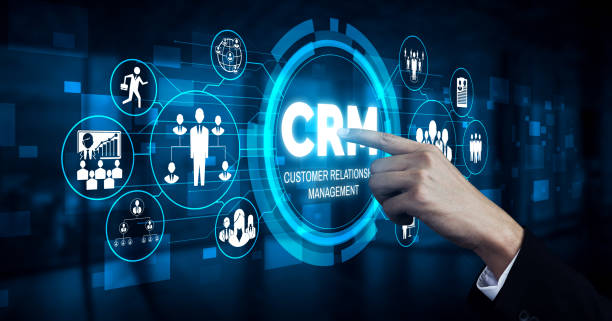
- June 21 2025
- SFI Solution Team
Integrating Social Listening Tools with CRMs for Better CX
In the current digitally driven marketplace, customer expectations are changing swiftly. Companies can no longer simply react; they need to foresee customer requirements and respond with flexibility.
A highly effective method to accomplish this is by merging social listening tools with Customer Relationship Management (CRM) systems. This combination provides an exceptional insight into customer behavior, preferences, and sentiment—establishing the groundwork for greatly enhanced Customer Experience (CX).
What Is Social Listening?
Social listening refers to the process of tracking digital conversations across social media platforms to understand what customers are saying about a brand, its competitors, and the industry in general. It goes beyond mere monitoring—social listening involves analyzing the data and extracting actionable insights to guide business strategies, marketing campaigns, and customer engagement efforts.
The Role of CRM in Customer Experience
A CRM system serves as the central repository of customer data—capturing interactions, sales records, support queries, and behavioral history. It enables businesses to build detailed customer profiles, personalize communication, and streamline customer journeys across touchpoints. However, traditional CRMs are often limited to direct interactions like email, calls, and support tickets.
Why Integrate Social Listening with CRM?
Combining social listening tools with CRM platforms empowers businesses to bridge the gap between indirect customer feedback and formalized data. This integration allows brands to :
-
Capture real-time feedback from social platforms
-
Understand customer sentiment outside traditional channels
-
Enrich customer profiles with social behavior data
-
React proactively to brand mentions and trends
-
Personalize interactions based on a 360-degree view
Key Benefits of Integration
1. Enhanced Customer Insights
When you integrate social listening data into your CRM, you gain access to conversations happening in real time across platforms like Twitter, LinkedIn, Facebook, Instagram, forums, and review sites. These insights reveal customer pain points, preferences, and sentiment that may never be captured through direct engagement.
2. Personalized and Timely Engagement
Social data allows support and marketing teams to reach out at the right time with the right message. For example, if a customer tweets about an issue or shares excitement about a new product, the CRM can trigger a response or follow-up that feels timely and relevant.
3. Crisis Management and Reputation Monitoring
With real-time alerts from social listening tools, your CRM can flag negative trends before they escalate. Customer service teams can prioritize responses to dissatisfied customers or influencers with large followings—helping manage brand reputation more effectively.
4. Streamlined Customer Journeys
By enriching CRM profiles with social data, businesses can map more comprehensive customer journeys. This helps create seamless omnichannel experiences, as marketing, sales, and support teams operate with the same up-to-date information.
5. Data-Driven Marketing Campaigns
Social listening reveals trending topics, keywords, and content preferences. Marketers can feed this intelligence into CRM systems to create segmented campaigns based on interests, sentiment, or behavior-resulting in higher engagement and conversion rates.
How to Successfully Implement This Integration
1. Choose Compatible Tools
Ensure that your social listening tool and CRM platform offer APIs or native integrations. Leading tools like Brandwatch, Sprout Social, Hootsuite Insights, and Talkwalker integrate with platforms such as Salesforce, HubSpot, Zoho CRM, and Microsoft Dynamics.
2. Define Objectives and KPIs
Clarify your goals—whether it’s improving response times, tracking sentiment trends, or enhancing personalization. Establish relevant KPIs such as Net Promoter Score (NPS), social sentiment score, or customer satisfaction (CSAT).
3. Automate Workflow Triggers
Use automation to streamline workflows. For instance, a negative tweet from a high-value customer can create a ticket in the CRM and alert the support team for immediate action.
4. Train Teams Across Functions
Both marketing and customer service teams should be trained to use integrated insights. Ensure they understand how to interpret social data and leverage it to enhance customer relationships.
5. Maintain Data Privacy and Compliance
Be mindful of data privacy regulations like GDPR and CCPA. Make sure that data collected from social platforms complies with legal standards and is securely stored within your CRM.
Real-World Example : Boosting CX with Social Listening + CRM
Consider a fashion retail brand that receives hundreds of product mentions daily on social media. With integration in place, the brand’s CRM tracks customer sentiment and automatically flags any dissatisfaction regarding product quality or shipping delays. This triggers a customer success workflow to reach out, offer resolutions, and collect further feedback—dramatically improving the customer experience and reducing churn.
The Future of CX Is Social and Integrated
As customers increasingly engage with brands on social platforms, businesses must evolve from passive listeners to active participants in these conversations. Integrating social listening tools with CRMs enables this transformation—arming businesses with the insights and agility to deliver empathetic, personalized, and proactive customer experiences.
By bridging the gap between social data and structured customer records, brands can anticipate needs, address concerns in real time, and foster deeper loyalty. In a competitive landscape where CX is the ultimate differentiator, this integration is not just beneficial—it’s essential.
Need help implementing CRM and social listening integration for your organization? Contact us at +1 (917) 900-1461 or +44 (330) 043-1353 , our experts specialize in designing unified digital ecosystems that drive customer loyalty and business growth.
Previous Post